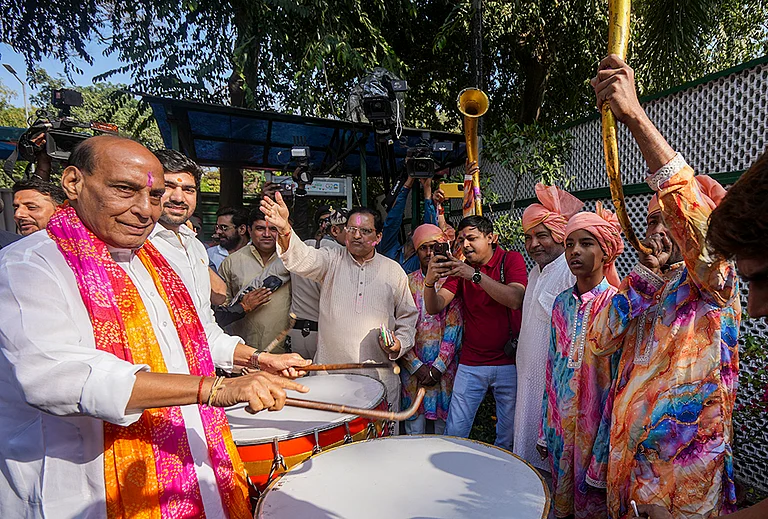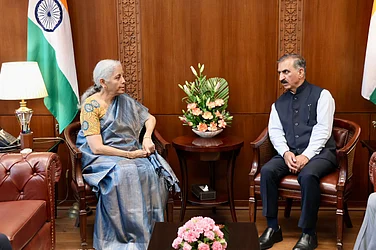Generic medicines made by Ranbaxy in India end up on doctor’s prescriptions in 150 countries including, of course, India. The pharma major’s cures are used for afflictions ranging from acne to cancer. Back in 2008, the same medicines were deemed to have put the health and safety of its users at risk. That’s why Ranbaxy agreed to pay $500 million (Rs 3,000 crore) in the US in May this year, to settle civil and criminal charges of supplying adulterated drugs and faking drug tests.
Ranbaxy medicines from its Dewas and Paonta Sahib units (which violated American drug manufacturing norms) have been banned in the US since 2008. In India, however, where the drugs were—and are—manufactured, the government has woken up to a probe only now, after Ranbaxy’s hefty penalty stirred public outrage. “We’re going over every detail, every filing, every point in the manufacturing process,” says health ministry joint secretary Dr A.K. Panda. “We’re conducting a complete examination of Ranbaxy.” Covering all Ranbaxy plants, this review will examine if it gave incorrect drug trial reports, and reassess their quality. Results are expected in a fortnight, Dr Panda said last week. The investigation is being led by the Central Drugs Standard Control Organisation (CDSCO), India’s drug trial approval body, with state drug inspectors.
Actually, government response to Ranbaxy’s troubles has been cautious. Top officials of the notoriously understaffed CDSCO were asked in May not to speak on the issue. India fears an anti-generics lobby will malign Indian pharma—ironic, considering Ranbaxy is now a Japanese company. But without a probe, Indian patients will never know what really was going on at Ranbaxy between 2003 and 2008—or now—leaving them with just the company’s assurances.
Ranbaxy India CEO Arun Sawhney says their drugs are “safe and efficacious” and the mistakes were in the past and related more to improper staffing and record-keeping—not making harmful or substandard drugs. “We operate with a high degree of conscientiousness and won’t compromise on any processes,” he says. Ranbaxy asserts how it voluntarily recalled Atorvastatin batches in 2012 after glass particles were found in them. Sawhney also cites the $300 million invested into improvements. The other plants, they say, are maintaining required standards. Yet, a Ranbaxy unit in Mohali, under close US regulatory watch, is known to be facing hurdles.
As part of a consent decree Ranbaxy signed with the US authorities last year, the controversial units in Paonta Sahib and Dewas need to spruce up before they regain FDA clearance. There is no such imposition in India, as authorities found nothing wrong at the plant when they inspected it, also in 2008. “Let me state that those two plants are not ‘controversial’, says Sawhney. “Drugs from there go to Canada, Africa, Europe, Australia, Latin America and India and meet full regulatory approvals there.”
Legal experts say the “consent decree” is no confession of guilt: it may just let Ranbaxy settle charges, avoiding long legal battles. That is why a recent PIL seeking action against Ranbaxy fell apart—the Supreme Court held that no evidence of wrongdoing in India was presented. “Each country will have to conduct its own probe and find fresh evidence before contemplating action,” says Ramesh Vaidyanathan, partner, Advaya Legal, Mumbai.
The rot, in fact, is deeper—a parliamentary committee this year found that CDSCO officials colluded with medical experts to approve drugs without proper examination, to favour drug companies. The PIL cited this report, which notes that 11 of the 39 drug approvals (of various companies) came without mandatory Phase iii trials. Two drugs were tested on 21 and 46 patients only—not meeting even the meek statutory standard of testing on 100 patients.
Yet, health ministry officials and Indian industry doubt the extent of wrongdoing at Ranbaxy—health officials say it is “tough to imagine” the company illegally imported other companies’ drugs in suitcases, as a Fortune report in May claimed, which American regulators ended up clearing unknowingly.
Indian drug inspectors’ 2008 clearance to Ranbaxy was based on foreign-country approvals it had. Now, FDA has imposed a heavy burden on Ranbaxy—it no longer takes the company’s word for its tests, trials and manufacturing, it must prove the drugs work. So, the Indian habit of accepting international approvals stands exposed as a weak way to monitor medicines. “India has to impose liability on companies within its jurisdiction that break the law,” says Prof Amir Attaran, Canada research chair in law, population health and global development policy, University of Ottawa.
Ranbaxy says its medicines are safe, and claims no adverse reactions are reported. However, as Marvin Shepherd, professor of health outcomes and pharmacy practice at the University of Texas at Austin and president, Partnership for Safe Medicines, says, “If you don’t put any active ingredient in a medicine, it can be a reason why no adverse reaction is reported. Doctors may, in such cases, move patients to different treatments, never knowing if anything was amiss.”
So, unless a large number of patients don’t respond, or reactions are severe, regulators may never know if drugs were substandard. Only routine, surprise tests, even of approved drugs, can fix this. Today India lacks a system for patients to report adverse reactions. The parliamentary committee has also pointed out a gross shortage of drug inspectors: over 1,000 fewer than required.
Indian authorities—and not just the health ministry—also need to steer clear of the twists and turns at Ranbaxy. In 2008, Japan’s Daiichi Sankyo bought the company. Now it alleges the sellers, brothers Malvinder and Shivinder Singh, did not disclose all of its problems, and has started arbitration in Singapore. Ranbaxy’s present management also wants to keep away from past wrongs. “I cannot comment on what happened in 2003 or 2004,” says Sawhney.
However, when a company changes hands, the new owners inherit its liabilities too. “The company is still responsible, and if the former owners breached their fiduciary duties as directors, they could be personally liable,” says Prof Attaran. But for now, there’s an urgent need for Indian health authorities to convince citizens that Ranbaxy’s drugs are safe. It will also need to redouble oversight of generic pharma.






















